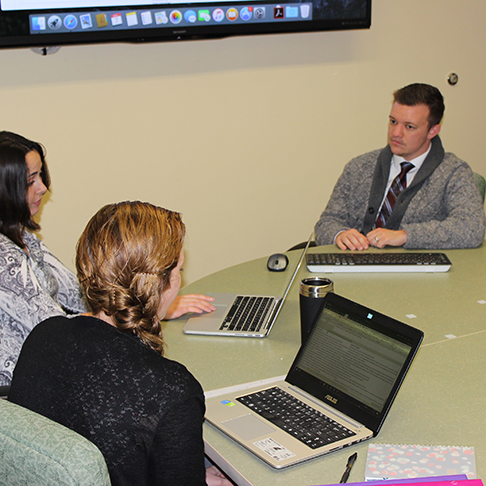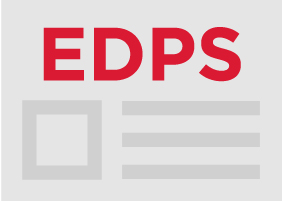Trans happiness study bridges research gap
Elliot Tebbe was not a believer. Positive psychology, he thought, did not adequately consider a community he was familiar with, and in fact a part of—people who transitioned from their gender assigned at birth to the gender they most identify with. Positive psych was a field of research that gained momentum in the late 1990s focusing on human wellbeing and the strengths that allow people to thrive. Tebbe’s early experience observing the “trans” community from a research perspective, and personally experiencing that transition during graduate school, left him concerned that positive psychology did not and does not clearly address the systemic marginalization of many individuals from stigmatized groups.
But over time, greater acceptance and greater understanding of the lived experiences of transgender people have given Tebbe hope and a direction for research in his role as an assistant professor in the Department of Educational Psychology. He’s now embarking on qualitative research that he hopes will “bridge the gap” between positive psych and the lived experiences of the trans community.
“For a lot of [trans] people there are these negative life experiences and these pressing mental health needs,” says Tebbe, “and there’s an awful lot of positive experience as well. People transition for a reason, and it’s not because of negative life experiences. It’s that there’s something good and fulfilling about that.
“So that’s where I’m looking to head moving forward—to find a way to bridge the gap between all this research—looking at marginalization and how that impacts mental health, but also bridging positive experiences and how that promotes wellbeing and thriving.”
Tebbe, whose scholarly work is in the area of counseling psychology, has dubbed his research the “Trans Happiness Study.” Individuals transitioning face many barriers, including acceptance from family and friends, lack of access to good jobs and healthcare and other discrimination. Anecdotally and in counseling sessions, he hears people talk about their concerns, fears and limitations, but he says, “the question that always seems to come up at the very end is, are you happy?” Many times, the answer is, yes. Tebbe hopes that documenting that trans people can live happy, productive and thriving lives may eventually inform and shape societal expectations.
That broader narrative, Tebbe says, is “totally missing from the research literature right now. To be at a place where I can contribute to that shaping I think is pretty cool—a good place for me to be right now.”
A new research project was approved last month that includes interviewing 15-20 trans people in the Lincoln area. He’s interested in discovering what happiness means to them. What makes them happy? How does happiness function in their lives? What pathways does happiness create? What gets in the way of happiness?
Tebbe would like to understand how happiness affects the worldview of this marginalized group, how happiness affects relationships with others, how it affects their ability to grow in their identity and if it provides hope in their lives.
A small pilot grant through the American Psychological Foundation will get the research started, and Tebbe hopes the initial research will lay the ground work for a larger federally funded study. He’s building a research bridge that’s never been attempted. It will take time, but he’s excited about the journey.
“I feel like I’m writing my own way forward. I’ve been able to see these two parallel fields, but there just hasn’t been that bridge yet, or not in a way that is easy to grasp onto. I hope, that this study will help show people within this community as happy as anyone else, even with these kind of alarming rates of depression and suicide risk that we’re seeing in the literature. I think that will also help people continue to move forward…go for a job that they may not have otherwise, continue to seek out good providers for healthcare, or just be able to continue to live life.”

